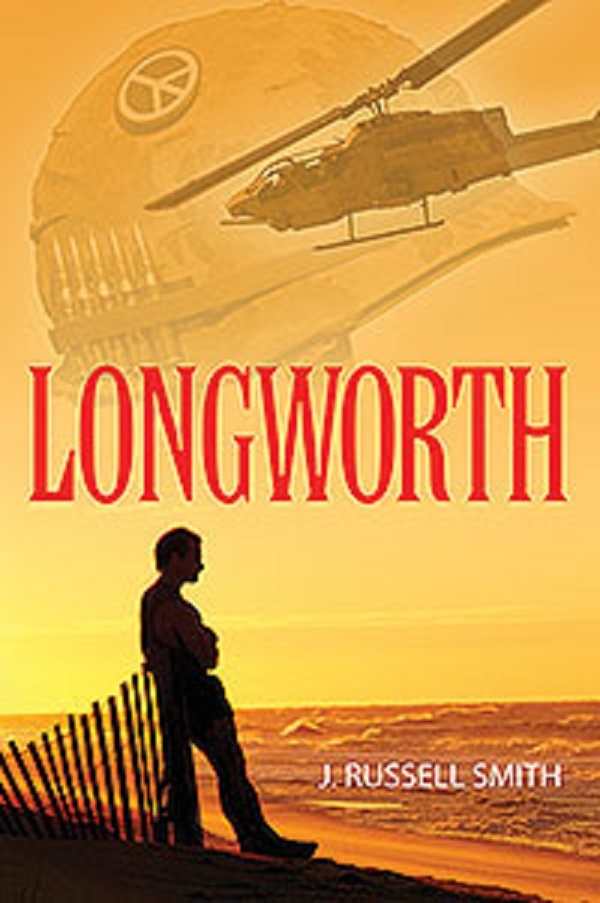Longworth
Longworth is an introspective novel in which a man’s days are directed by the historical circumstances he encounters.
An irresponsible college student comes of age during the Vietnam War in J. Russell Smith’s historical novel Longworth.
Intelligent but feckless, Carson receives a rude awakening when his poor grades force him out of school and into the military. The discipline of the Marine Corps serves to mold him into someone with a promising personal and professional future. At the same time, the chaos of the Vietnam War makes him jaded enough to forever set him apart from fellow people. These experiences have a profound impact on Carson’s life and on the lives of those closest to him.
Indeed, by the story’s end, Carson comes to seem most like a representative of the uncertainty and impermanence of the Vietnam era. The specter of Vietnam looms over his tale; without the war, it seems, he would not have developed as he did. As it is: events force his social conscience to evolve. He finds himself pulled in multiple directions: conflicted by his growing anti-war sentiments, he’s also influenced by the glamour of being a helicopter pilot. These relatable contradictions flesh out the novel’s dominant themes: a person cannot choose when and where they are born, but they can control who they become.
Still, Carson’s universal popularity and effortless success are grating throughout, especially given his selfish, unfaithful behavior. This is mitigated somewhat by the narrator’s tendency to point out his shortcomings and how he changes in the future. Gentle sarcasm is applied to Carson’s pompous, pie-in-the-sky thinking—and to the vagaries of politics. Audiences are encouraged to think critically, rather than accept an opinion at face value.
But the narrative is slow and repetitious. It assumes the tone of nonfiction, relating the historical events that shaped Carson’s early years. It assumes a bird’s-eye view of Carson’s life, describing how his parents, the war, and other factors placed him at odds with most of his colleagues. Worldbuilding and the development of other characters—with the possible exception of Carson’s love interest, Kathy—are minimal elements in the story. Epiphanies are delayed: the time spent detailing Carson’s change of mindset is short compared to the time spent building him up as a shiftless partier. The story’s balance is compromised.
Longworth is an introspective novel in which a man’s days are directed by the historical circumstances he encounters.
Reviewed by
Eileen Gonzalez
Disclosure: This article is not an endorsement, but a review. The publisher of this book provided free copies of the book and paid a small fee to have their book reviewed by a professional reviewer. Foreword Reviews and Clarion Reviews make no guarantee that the publisher will receive a positive review. Foreword Magazine, Inc. is disclosing this in accordance with the Federal Trade Commission’s 16 CFR, Part 255.

